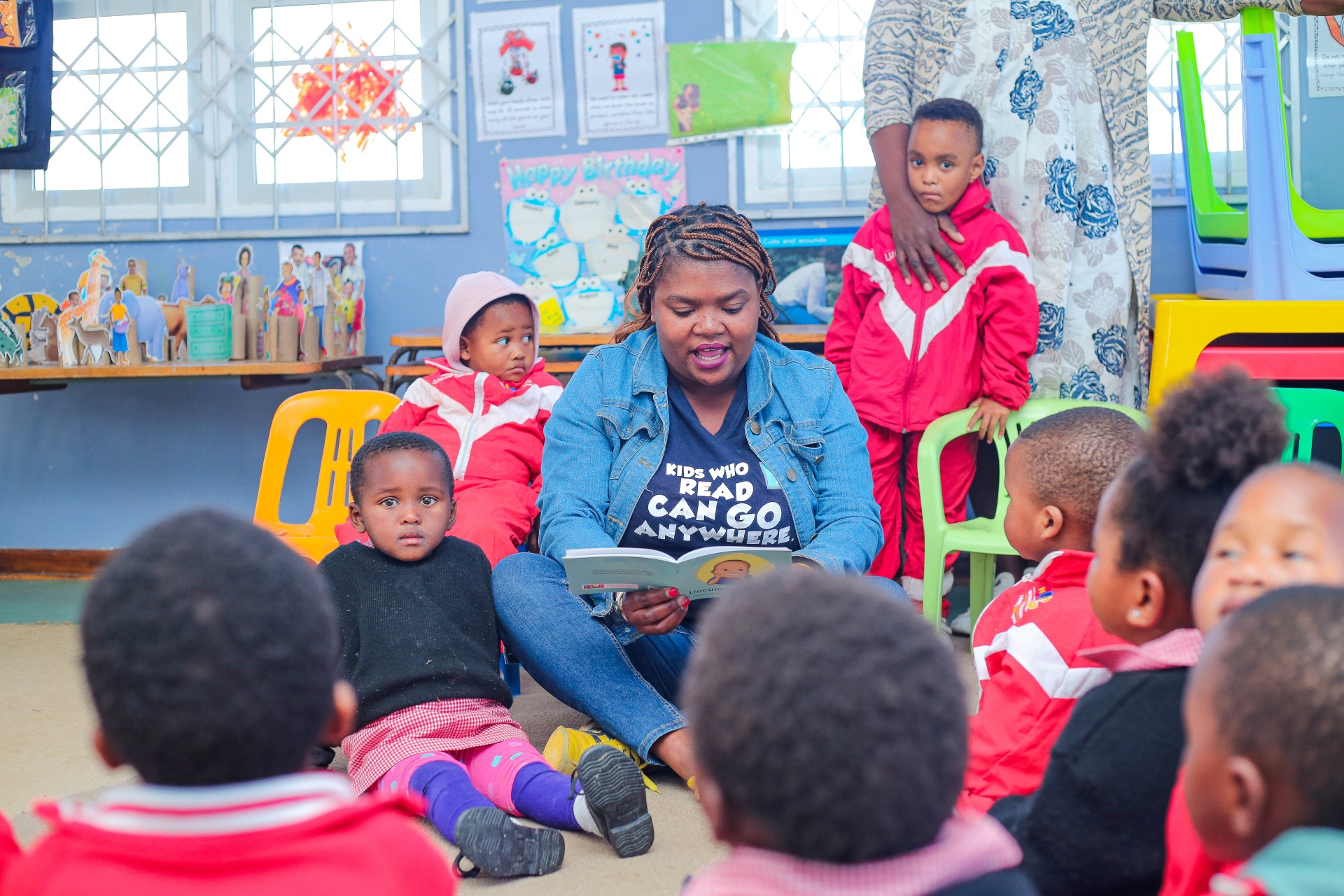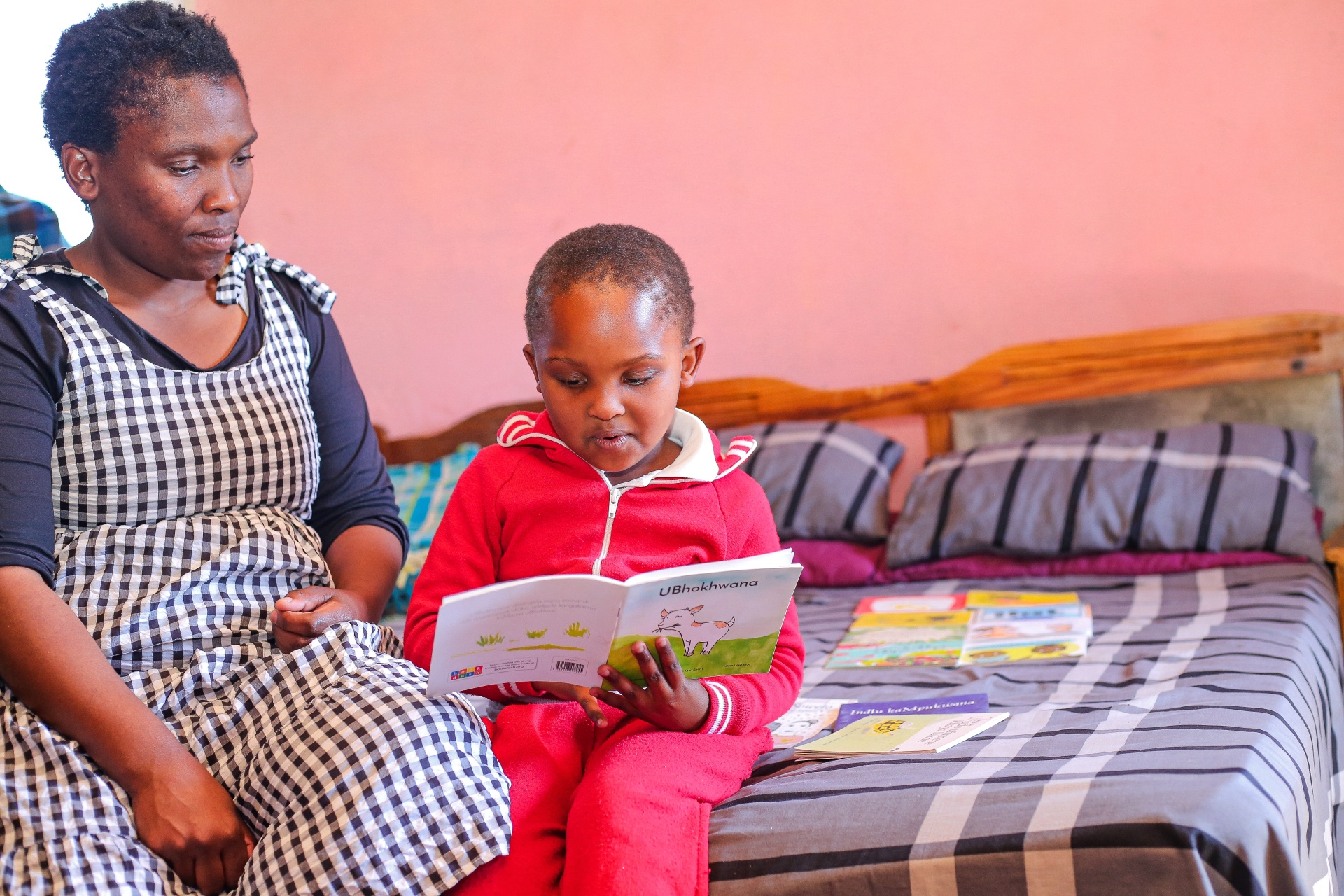“The project moved the children’s average performance from below the Provincial average to far above it”
South Africa, Friday, 20 September 2024 – A major challenge in South Africa is that many children start schooling without having acquired basic learning skills at home or in their communities. These basic skills are hard to learn in school. Can children in very poor communities ‘catch up’ before they fall behind? The Yizani Sifunde project proves that it can be done.”
The Yizani Sifunde Project (the Project), initiated and funded by the Liberty Community Trust, has concluded after three successful years of collaboration between three highly accomplished literacy organisations, which are Nal’ibali, Book Dash, and Wordworks. The Project was jointly designed by these organisations to improve early childhood literacy and language development in the Eastern Cape Province.
Over the three-year period, the Project meaningfully impacted communities around Queenstown and East London. Specifically, the Project directly engaged 126 early childhood development (ECD) centres, benefiting 3023 children in Project classrooms. Additionally, the Project reached over 1200 children through reading clubs, 7600 community members, 126 ECD practitioners, 30 youth, and 500 parents and caregivers. The consortium collectively distributed nearly 239,000 Book Dash books and 83,679 supplemental reading materials from Nal’ibali.
Dr Gabrielle Kelly, Head of Research, Impact and Innovation at Nal’ibali said “The project took an ecosystem approach by equipping and mentoring adults to provide joyful reading experiences and act as reading role models to children in ECDs, homes and other community settings. Increasing the supply of reading opportunities motivated children to demand more stories, with the shared enjoyment of reading together creating a positive feedback loop that reinforced reading in homes.”

The Project aimed to address a critical need in the region, where only 51% of children in early learning programs demonstrated on-track early literacy and language development. The Eastern Cape Province struggles with children beginning school without adequate foundational skills, putting them at risk for ongoing struggles. Most under-resourced ECD centres in rural areas of the province lacked structured early literacy curricula and sufficient materials to effectively teach early literacy skills, exacerbated by the fact that two-thirds of homes with children under age 10 had no children's books.
Through complementary interventions integrated at ECD centres, in homes, and within communities, the Project focused on improving the language and literacy of 4-5 year old children. Interventions centred on increasing access to high-quality reading materials, alongside training and support for ECD practitioners, caregivers, and community members.
“The Yizani Sifunde project transformed book-poor environments into book-rich spaces, with the average number of books per household increasing from 1.6 at baseline to 26.4 at endline,” said Dorette Louw, Operations Director.
The Project concluded on a highly positive note, with measurable success. An independent evaluation, led by Social Impact insights Africa, revealed that children who participated in the Project demonstrated significantly improved literacy, language, fine motor, and executive functioning skills. Performance in numeracy and mathematics also improved, even though the Project focussed on literacy. On average, children participating in the project were found to have gained 4 to 6 months of additional learning beyond what is expected within the 8 months during which they were observed. At the end of the project, the participating children performed significantly better than the provincial average despite their very low socio-economic backgrounds. Dr Tara Polzer Ngwato, the lead evaluator from SII Africa, explained, “compared to the learning improvements usefully achieved by education interventions in similar international contexts, this project was extremely successful. Its effects were greatest among the most disadvantaged children – most of those who were far behind the expected learning standard at the beginning of the year caught up and were on track by the end of the year.”
This impact on children was made possible by strong shifts in the two environments in which children spend most of their time: the ECD centres and the homes. In the ECD centres, the Project sustainably strengthened early learning environments and teaching practices, with a rich and structured language and literacy curriculum and attractive teaching resources helping boost the practitioner confidence and the child engagement. In the homes, children were able to set up their personal home libraries, and spent a lot of time reading - on their own, with siblings, friends and with their caregivers.
Dr Magali von Blottnitz, Monitoring, Evaluation and Learning Consultant at Wordworks said “This project’s impact could not have been achieved with the classroom programme alone, so it has been exciting to watch how the shifts in the ECD centres and in the homes have worked to reinforce each other for the benefit of the children. We also placed great emphasis on ensuring sustainability of the impact, and were pleased to see that even after the project had exited certain communities, the classroom activities were still taking place and the resources were taken care of.”

The success of this project demonstrates the potential for future collaborations to drive meaningful impact at scale. The value of individual interventions (training, resourcing of libraries, etc.) is largely undisputed. However, the project partners firmly believe that combining components of training, modelling and resourcing – and targeting ECD centres and homes simultaneously, help to leverage the impact in a much greater way than if these interventions are offered separately.
The ownership of children’s books deserves a specific mention: in the project, children with more books at home had better early learning skills, executive functioning and early numeracy.
The Yizani Sifunde project has now come to an end, but the project partners are keen to seize opportunities to replicate their approach or encourage other peers to apply similar methodologies wherever applicable, either in the Eastern Cape or in other provinces. By providing children with a strong start, communities lay the groundwork for a more prosperous future for all.
About Yizani Sifunde
Yizani Sifunde - isiXhosa for “come, let’s read” – is aimed to boost early literacy outcomes at under-resourced ECD centres in the Eastern Cape. It was implemented in three one-year cycles between 2021 and 2023. The project was initiated and funded by the Liberty Community Trust, and jointly designed and delivered by three literacy nonprofits: Book Dash, Nal’ibali and Wordworks. Khululeka and ITEC supported implementation. When children start school without adequate early language and literacy skills, they are likely to struggle throughout their school career.
